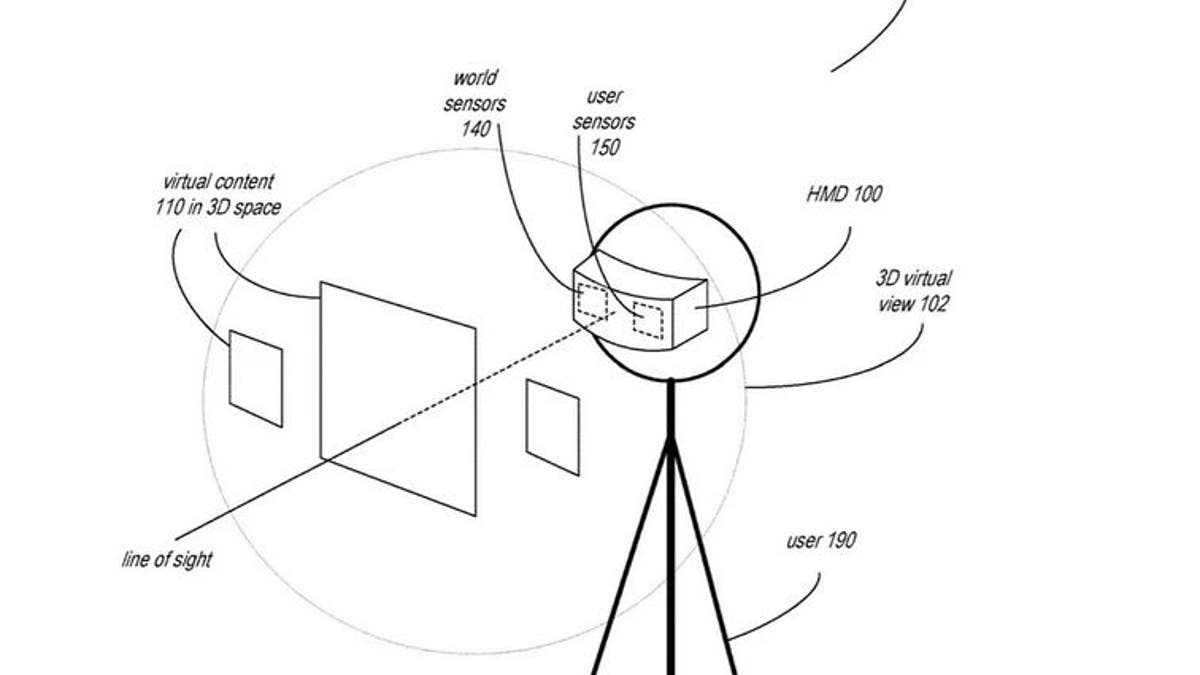Fox News Flash top headlines for July 23
Fox News Flash top headlines for July 23 are here. Check out what's clicking on Foxnews.com
Apple has filed a patent for a mixed reality headset that could include sensors to track users' facial features, eyes and hands.
The patent, which was filed in March 2019 and is called Display System Having Sensors, indicates that Apple is researching how mixed (or augmented) reality might translate from cellphones to glasses.
The system depicts a head-mounted display, a group of cameras and other sensors to track the environment around a person. According to the filing, the headset could include "head pose sensors," "eyebrow sensors," and "lower jaw sensors."
Apple describes a system that’s different from most AR glasses, according to Variety, which typically project partial images that still let you see the real world. At least one variant of Apple's system uses pass-through video — where cameras capture a video feed, then the headset composites digital objects onto it and displays the resulting images on a VR-like screen.
FACEBOOK LET THOUSANDS OF KIDS JOIN CHATS WITH UNAUTHORIZED USERS

Apple has filed a patent for a headset featuring many different capabilities. (U.S. Patent Office)
SCIENTISTS DISCOVER STRANGE 'NIGHTMARE' CRAB WITH CARTOON EYES
The famously tight-lipped company, led by CEO Tim Cook, hasn't commented about the patent, but he has spoken highly of AR's potential in recent years.
"I see AR as being profound," Cook said last year. "AR has the ability to amplify human performance instead of isolating humans. So I am a huge, huge believer in AR. We put a lot of energy on AR. We're moving very fast."
During an event in May, Cook touted augmented reality's benefits for the retail and manufacturing sectors.

Apple CEO Tim Cook reacts during the Economic Summit held for the China Development Forum in Beijing, China, Saturday, March 23, 2019. (AP)
With the release of iOS11, most newer model iPhones have support for augmented reality at the operating system level. Apple created ARKit to help app developers more easily build AR apps.
Variety reports that Apple analyst Ming-Chi Kuo estimated the company would start producing a headset by the fourth quarter of this year to be released in 2020.
Google Glass, which debuted six years ago to significant mockery, is now marketed as a business product. Facebook owns the virtual reality hardware and software company Oculus.









































